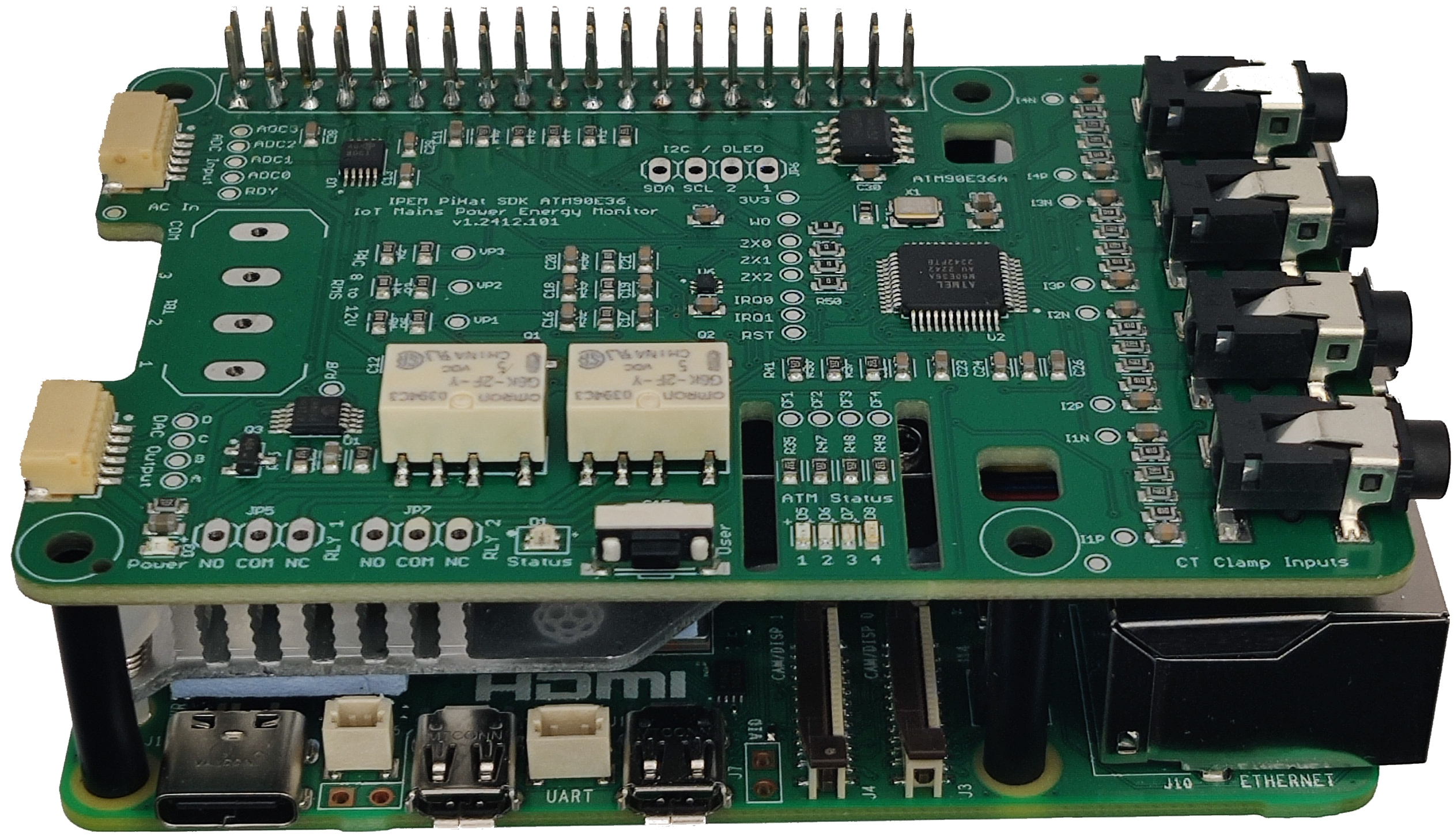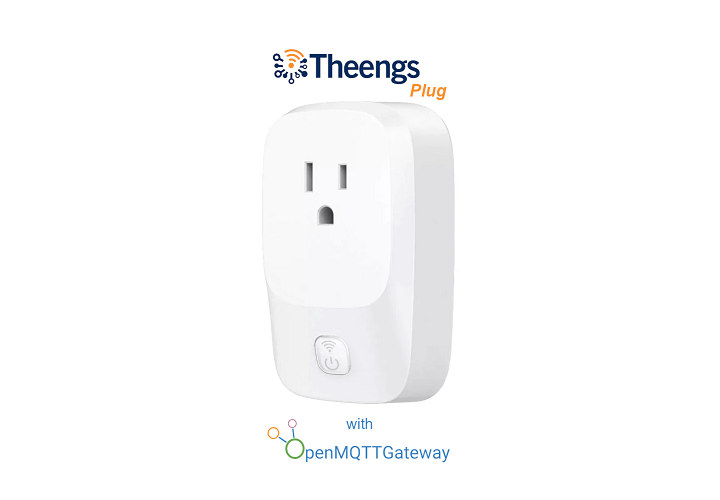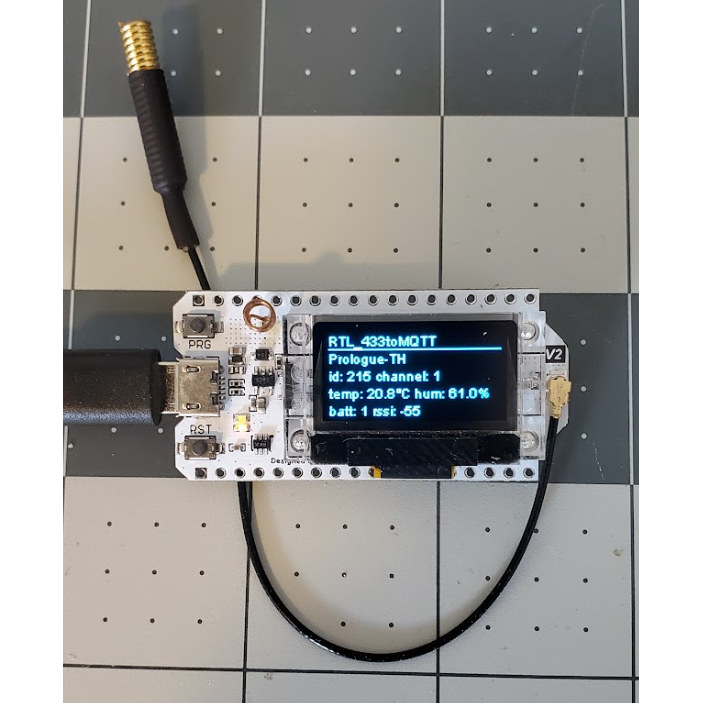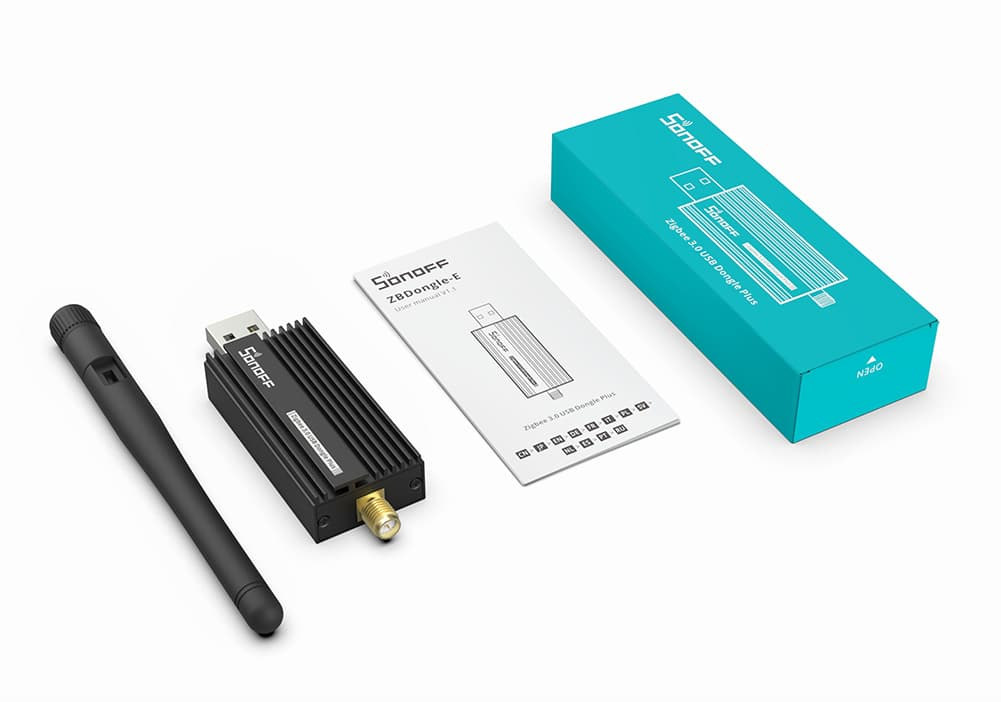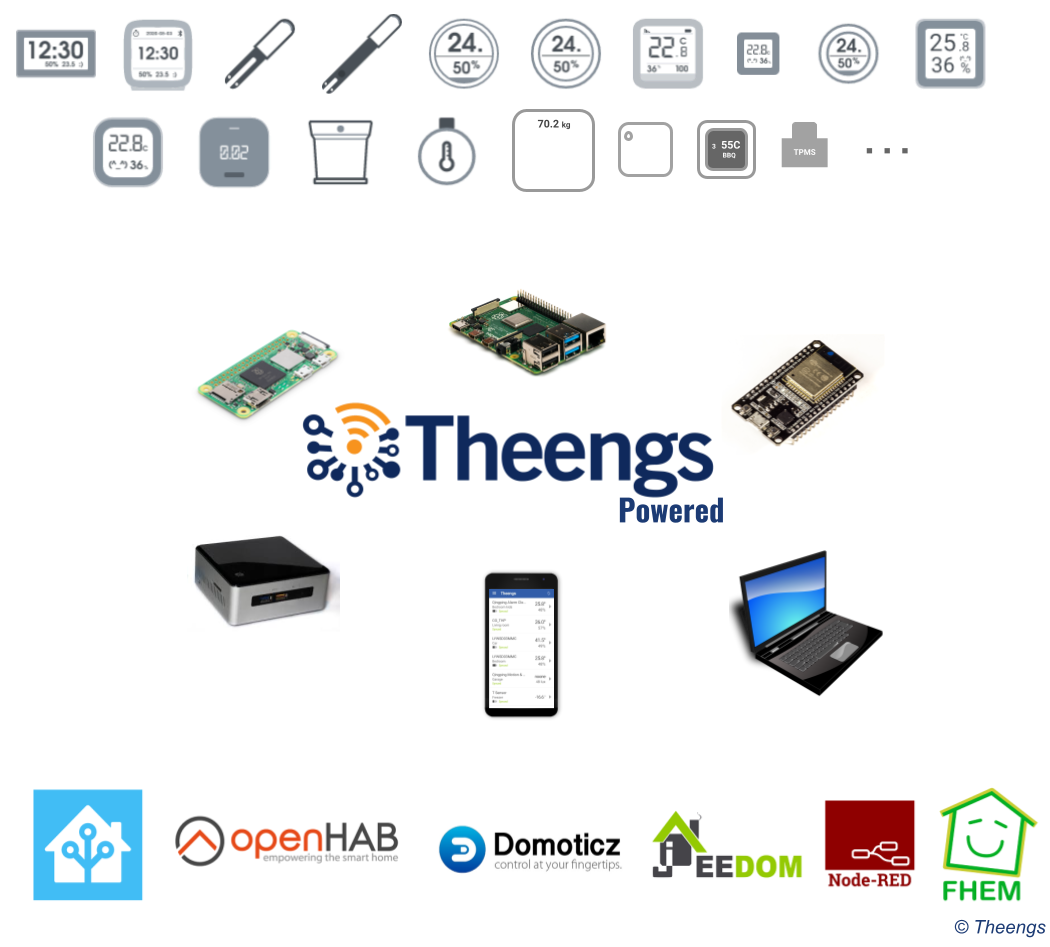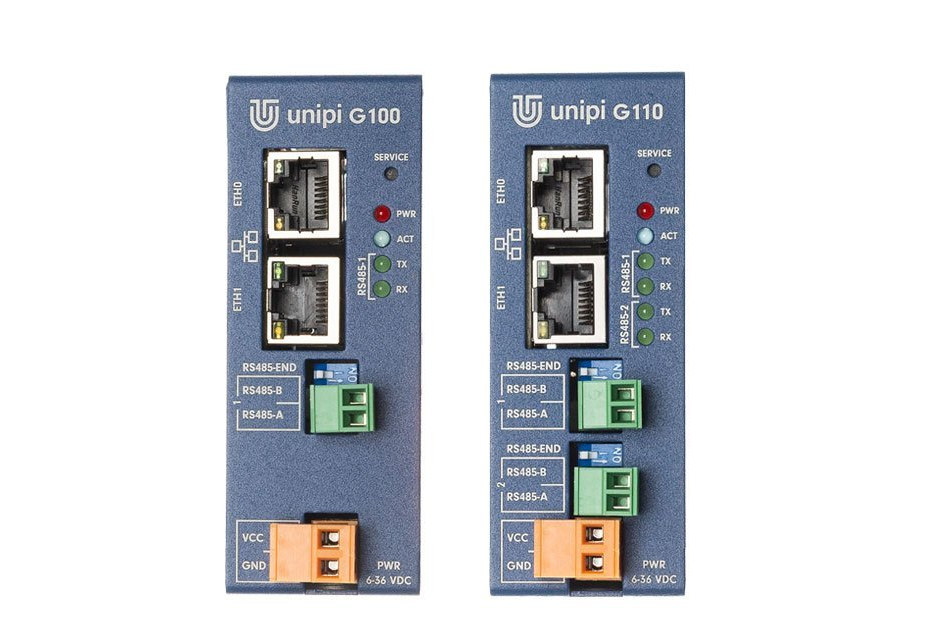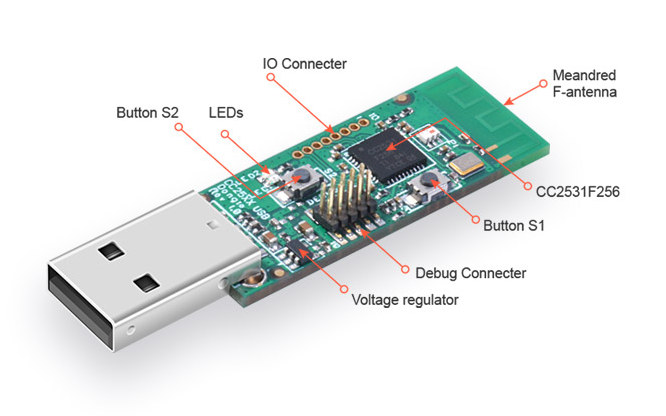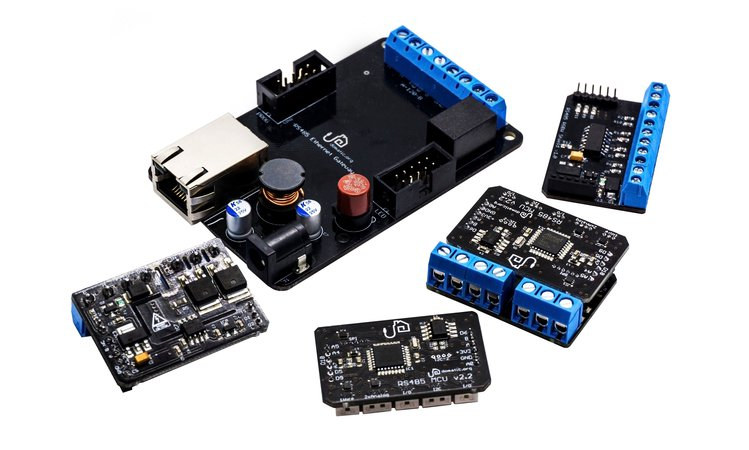The IPEM PiHat is a HAT (Hardware Attached on Top) board for the Raspberry Pi that turns the single-board computer into a mains power energy monitor with four CT clamps. It provides an accurate way to track energy usage in home, office, and solar energy systems and is compatible with single-phase, two-phase, and three-phase electrical systems. The Raspberry Pi-based power energy monitor uses CT (current transformer) cable clamps to sample and measure data which can be used to report and analyze electric energy usage. This data can be used to save and divert energy to reduce costs and inefficiencies. The system is easy to set up and does not require a professional electrician. It uses a CT current clamp clipped over the building’s main power cables and connected to the local mains circuit for voltage and frequency measurement. The add-on board comes in two variants: IPEM PiHat and IPEM PiHat […]
ESP32 OpenMQTTGateway smart plug acts as an BLE MQTT gateway and a power meter
The Theengs Plug ESP32 smart plug runs OpenMQTTGateway firmware to serve as a BLE MQTT gateway and power meter compatible with Home Assistant, Homebridge, OpenHAB, DomoticZ, FHEM, Jeedom, NodeRed, AWS, and any MQTT-compatible IoT or Smart Home system. While the Matter standard should improve interoperability between Smart Home frameworks over time, there are still millions of devices already produced that are not Matter compatible, and the Theengs Plug aims to at least partially address this issue by helping users reduce the number of hubs required and have only one that supports different ecosystems. Theengs Plug hardware specifications: Microcontroller – ESP32 dual-core wireless MCU with 2.4 GHz WiFi and Bluetooth LE connectivity Network Protocol – MQTT Power Supply – 100-120VAC, 60Hz, up to 15A Dimensions – 103 x 61 x 34.6mm Temperature Range – Operating: 0ºC ~ 40ºC; storage: -10°C ~ 50°C Humidity – 0%~95% (no condensation) Certification – UL Some […]
433 MHz is not dead! Using an ESP32 board with LoRa module to talk to 433 MHz sensors
CNXSoft: This is a guest post by Florian Robert (1technophile) of the OpenMQTTGateway project about using a 433 MHz LoRa transceiver on an ESP32 board for home automation, specifically to talk to 433 MHz sensors Everyone is talking about Matter, Bluetooth, Zigbee, and Zwave, but before these complex communication technologies, we had one simple, robust one that our sensors and devices used to leverage: 433MHz. It may be too simplistic to talk about 433 MHz as a technology as there are different and various usages of this frequency. You can find it being used in numerous devices around your home, from your outdoor temperature sensors, and security sensors to the tire pressure sensors in your car. If we want to be specific, we can talk about the different radio frequencies (433 MHz, 915MHz, 868MHz, 315MHz, or 350MHz) and signal modulations OOK, ASK, FSK that we encounter behind the keyword 433MHz. […]
Sonoff ZBDongle-E Zigbee 3.0 USB dongle features EFR32MG21 MCU with +20dBm radio
ITEAD has just released a new “ZBDongle-E” Zigbee 3.0 USB adapter with Silicon Labs Mighty Gecko EFR32MG21 Arm Cortex-M33 microcontroller with a +20dBm radio for extended range. The new dongle is an alternative to the popular Texas Instruments CC2652P-based Sonoff Zigbee 3.0 USB Dongle Plus, also known as “ZBDongle-P”, with a more compact design, and many of the same features. Sonoff ZBDongle-E specifications: Wireless MCU – Silicon Labs EFR32MG21 Arm Cortex-M33 multiprotocol wireless MCU @ 80 MHz with 64KB RAM, 768KB flash, +20 dBm 802.15.4 radio for Zigbee 3.0 and Thread support, and as well as a Bluetooth 5.1 Low Energy radio Connectivity – Zigbee 3.0 with SMA antenna connector, +20 dBm output power Host interface – USB port with CH9102F USB to TTL chip Expansion – 7-pin IO header with programming pins Misc – Boot and reset buttons, Zigbee LED, Power LED Power Supply – 5V/100mA via USB port, […]
Theengs open-source tools to decode BLE sensors work on ESP32, Raspberry Pi, Android phone, etc…
Theengs is a manufacturer agnostic open-source set of tools to decode BLE sensors and integrate those into smart home and IoT solutions such as Home Assistant with notably support for autodiscovery to automatically create the sensor. Theengs can be installed on various hardware from ESP32 to an Android phone or a Raspberry Pi SBC, and the solution currently supports close to forty BLE sensors from various companies including Xiaomi, Honeywell, and RuuviTag. There are six components: The Theengs Decoder library developed in C++ for portability and translating data from sensors into human-readable data using the JSON format. The Python-based Theengs Gateway acting as a BLE to MQTT bridge for Home Assistant, OpenHAB, and NodeRED integration. It relies on the Theengs Decoder library and publishes the sensors broadcasted BLE information to an MQTT broker. The OpenMQTTGateway is also BLE to MQTT bridge, but instead of targetting Linux-capable hardware like Raspberry […]
UniPi Gate RS485 Linux IoT Gateway features 600 MHz Rockchip RK3328 SoC
Based in the Czech Republic, UniPi Technology design and manufacture programmable logic controllers, gateways, sensors and systems for smart homes, building management systems, industry and automation projects. Their latest product is UniPi Gate G100/G110 Linux IoT gateway with Ethernet and RS485 interfaces. When the company contacted CNX Software about the gateway, they told us the system was based on a quad-core Cortex-A53 processor clocked at 600 MHz. Since we are not aware of such SoC, we asked, and UniPi told us it was Rockchip RK3328. That processor is normally clocked at 1.5 GHz, and it turns out the company purposely underclocked the processor to 600 MHz to extend the temperature range and reduce the heat emitted by the CPU. UniPi Gate G100 & G110 specifications: SoC – Rockchip RK3328 quad-core Cortex-A53 processor @ 600 MHz System Memory – 512MB RAM Storage – 16GB eMMC flash, MicroSD card slot Networking – […]
$4 ITEAD CC2531 Zigbee USB Dongle Works with Zigbee2MQTT Out of the Box
Some of ITEAD Studio’s Sonoff home automation devices include Zigbee connectivity with for instance Sonoff BASICZBR3 smart switch or a version of Sonoff S31 smart socket with integrated Zigbee. Those devices usually work via a Zigbee enabled gateway that could be a router, Raspberry Pi SBC, or mini PC, which ITEAD did not offer so far. But to help people making their own Zigbee gateway the company is now selling a low-cost ($3.99) CC2531 USB dongle preloaded with CC2531ZNP-Prod firmware (Zigbee coordinator firmware), and compatible with Zigbee2MQTT open-source Zigbee to MQTT bridge once plugged into a PC, Raspberry Pi, or another Linux SBC. ITEAD CC2531 Zigbee USB dongle specifications: MCU – Texas Instruments CC2531F256 Zigbee and IEEE 802.15.4 wireless MCU with 8kB RAM, 256kB Flash pre-loaded with CC2531ZNP-Prod firmware for zigbee2mqtt application Host Interface – USB 2.0 male port Expansion – 8-pin unpopulated header with 8 I/Os Debugging – Debug […]
GetWired Aims to Make RS-485 Wired Home Automation Affordable and User-friendly (Crowdfunding)
You may think about installing a home automation system, and WiFi may appear like the obvious way to go since it removes the need for cumbersome cabling, but wired networks are more reliable and secure, and there’s no need for batteries to be recharged or replaced. However, such wired home automation systems may be difficult to install and are often expensive, so Domatic decided to work on a solution to lower the costs and improve the ease of installation and use. Meet GetWired RS-485 wired home automation solution. Getwired is comprised of four modules communicating over the standard RS-485 protocol: MCU Module based on Microchip ATMEGA328PB MCU @ 8 MHz with 64KB SPI flash, an RS-485 transceiver, a 12-pin interface for connecting shields and 6 different Molex connectors for I/O including PWM, analog, interrupt pins, as well as I²C and 1-wire interfaces – Dimensions: 40 x 25 mm 2SSR Shield […]


